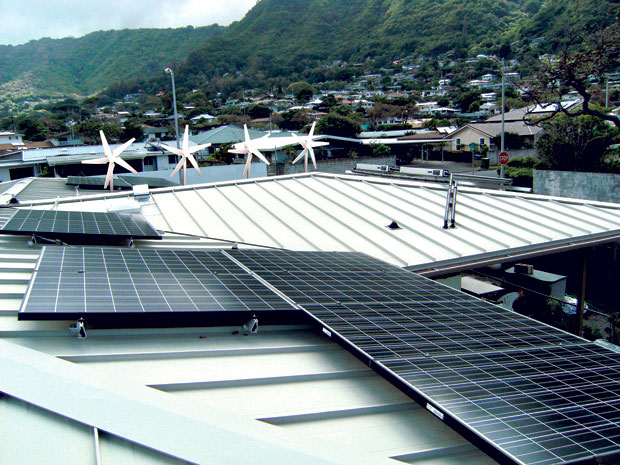There are many aspects about photovoltaic (PV) systems that you need to know prior to purchasing. Basic knowledge will help in assuring that your purchase is an informed decision. Pacific Islands Construction believes that with information, consumers will make the right decision for themselves.
Almost all manufacturers of solar modules are losing money and going bankrupt, or just leaving the industry. It was reported by local media that Sharp, the latest manufacturer to close its solar operation, would be selling its business in order to help satisfy its $16 billion debt. Weekly earning reports reveal that losses are mounting with almost every manufacturer. Choose a module produced by a manufacturer that is financially solid like Kyocera, which is financially strong and has been in the industry for a long time.
Solar equipment needs to be maintained and this includes cleaning the modules and getting the racking system inspected. Also, inspecting/repairing the roof penetrations, all electrical components and cleaning the inverters is recommended. Pacific Islands Construction has a five year maintenance program with every system installed to ensure that it will not develop problems. If you would like to have your system inspected, even if the company did not install it, Pacific Islands Construction maintains systems installed by others on a yearly contract.
Not all PV modules are the same, and quality does make a difference. In the last few years, power losses of installed solar modules have been observed when the modules are exposed to high negative-voltage bias. The industry has found this leakage of current flow between cells and is calling it Potential Induced Degradation, or PID. In another recent report, a phenomena called “snail trails” has been found in more than 25 manufacturers’ modules. Discoloration of the contact grids has been observed in these modules and owners claim that they are under-performing. Speculation for reasons why these problems are occurring center around the thickness of the cells, thickness of glass, cell fractures and frame construction.
PV systems are installed on your roof, so it is important that they are installed with racking systems and flashings that meet the IBC (International Building Code). The modules must be installed so that they do not fly off the roof during high winds, and to ensure they do not, many roof penetrations are made to secure the racking system that holds the modules. Also, each attachment needs to be flashed properly so that the roof does not leak. Unfortunately, consumers are assured that their systems have been installed properly when, in many cases, this is not true. To know what you’re getting, ask for documentation on the flashings and racking system.
Finally, be wary of any sales talk that promotes trying to manipulate the state tax code by giving you credits you do not deserve.
Pacific Islands Construction has many options available regarding financing. It has consumer loans with no interest for 12 months and no money down. The company can also provide leasing. Call 841-7756, email pic05@hawaii.rr.com or visit www.pacificislandsconstruction.net.
contact // 841-7756
web // Pacificislandsconstruction.net

See more articles from: Pacific Islands Construction